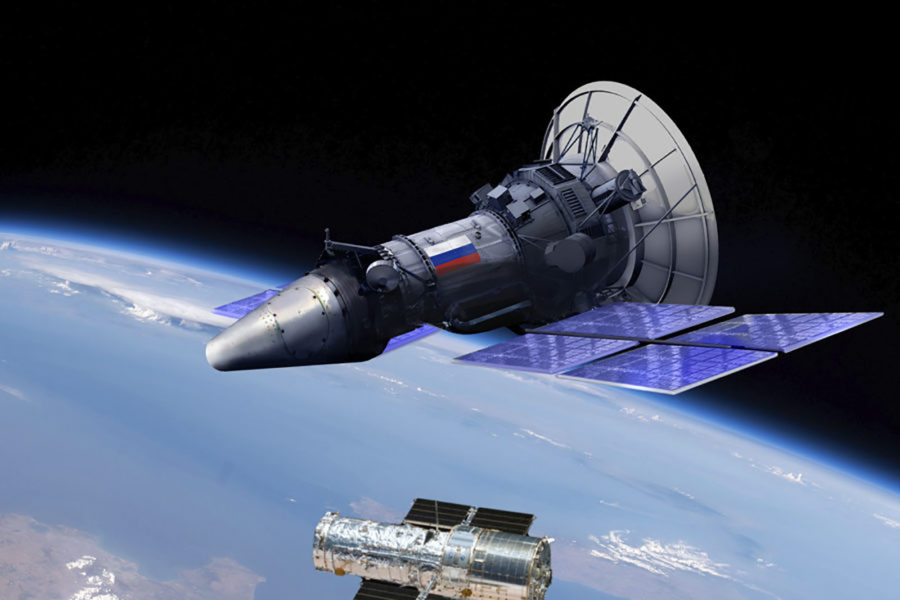Russia launched a counterspace weapon into the same orbit as a U.S. government satellite on May 16, U.S. officials said, further increasing tensions between the two countries in space.
“On May 16, Russia launched a satellite into low Earth orbit that the United States assesses is likely a counterspace weapon presumably capable of attacking other satellites in low Earth orbit,” said U.S. Ambassador Robert Wood in a May 20 speech at the United Nations. “Russia deployed this new counterspace weapon into the same orbit as a U.S. government satellite.”
Pentagon press secretary Maj. Gen. Patrick S. Ryder said May 21 that “assessments further indicate characteristics resembling previously deployed counterspace payloads from 2019 and 2022.”
Ryder declined to discuss what U.S. intelligence agencies know about the satellite’s payload.
In late 2019, the Russians launched a satellite that then released a second satellite. Both satellites then followed a National Reconnaissance Office satellite. Then-Chief of Space Operations Gen. John W. “Jay” Raymond compared them to Russian “nesting dolls.” Several months later, U.S. officials said the sub-satellite had released another object, apparently firing a projectile at high speed.
U.S. officials have not previously publicly discussed the 2022 counterspace payload, but they have highlighted other Russian counterspace efforts. In 2021, Russia tested a direct ascent anti-satellite missile on one of its own spacecraft, destroying it and creating a massive debris field in its wake. And earlier this year, then-Assistant Secretary of Defense for Space Policy John F. Plumb confirmed concerns that Russia is developing an “indiscriminate” nuclear weapon to go in space.
The U.S. has since cosponsored a resolution in the UN calling on all nations not to develop or deploy nuclear weapons in outer space. Russia vetoed that resolution, however, then introduced one of its own condemning all weapons in space.
Wood, representing the U.S. at the UN Security Council, decried Russia’s resolution as “diplomatic gaslighting and dissembling.” He revealed the new counterspace satellite in a speech before a vote on the measure failed in the U.N. Security Council. The vote was a 7-7 tie, with Switzerland abstaining. The U.S. voted against it.
U.S. Space Force and Space Command officials have said that both Russia and China are ramping up their counterspace efforts, developing and testing new weapons like lasers to dazzle satellites, the “nesting dolls,” and a “grappling” satellite that can grab and tow other satellites out of their orbit.
Current CSO Gen. B. Chance Saltzman has said the Space Force will support “responsible counterspace campaigning” to counter the threat while ensuring space can remain usable for all nations.
